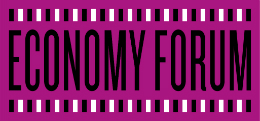
comment
What is gender?
Listen to the debate from the Battle of Ideas 2016.
For many people and for many purposes, the words ‘sex’ and ‘gender’ mean the same thing - a straightforward way of distinguishing between two types of people (males and females, or men and women). But it is no longer safe to assume that things are this simple. Earlier this year, in a letter confirming primary school places, Brighton and Hove City Council asked parents to fill in a form about their children’s details and said: ‘Please support your child to choose the gender they most identify with. Or if they have another gender identity please leave this blank and discuss with your child’s school’. Reactions ranged from approval to anger to bewilderment. How did gender get so complicated, and when did it become something chosen by four-year-olds?
The words ‘sex’ and ‘gender’ both have their origin in Latin - ‘sexus’ referred to division between things (like men and women) while ‘genus’ referred to similarity between things (like men and men or women and women). In the second half of the 20th century, academics and activists began distinguishing between sex and gender, so that the former was a matter of biology and the latter was a matter of social roles. Simone de Beauvoir’s claim that ‘one is not born a woman, but becomes one’ was developed by feminist thinkers from Monique Wittig to Judith Butler, emphasising this sex/gender distinction. The argument that gender is a social construct was used initially to challenge the belief that people’s aspirations, behaviour and capabilities should be determined by their biology. The sex/gender distinction was then incorporated into medicine with the concept of ‘gender dysphoria’ - the distressing conviction that the gender category in which one has been placed is incorrect – and the resulting rise of sex reassignment surgery. The number of people diagnosed with this condition is small but growing rapidly, with referrals to the UK’s seven gender identity clinics growing steadily and the NHS struggling to keep up with demand.
Gender is now a concept with medical and scientific meaning all of its own, despite having originally been distinguished from sex precisely in order to escape the natural laws of biology. Meanwhile, ‘transgender’ has become an identity and a subject of political advocacy (not to mention, in Brighton and elsewhere, a bureaucratic and regulatory concern) while nonetheless drawing its authority from medical and scientific claims. In light of these developments, is possible for society to have a consensus on what gender means? Was distinguishing gender from sex a sensible thing to do? If so, is the distinction still useful now?
SPEAKERS
Chrissie Daz
schoolteacher; cabaret performer; author on transgender and gender variant identity
Professor Robin Lovell-Badge
group leader, stem cell biology and developmental genetics, Francis Crick Institute
Dr Terri Murray
director of studies, Hampstead College of Fine Arts and Humanities
Professor Marilyn Strathern
Emeritus Professor of social anthropology, University of Cambridge
To keep up with the IoI’s podcasts, add our RSS feed to your favourite podcast app.

comments archive

what's happening next

Tilting at windmills: are there downsides to a ‘green recovery’?
Monday 23 November, 7pm (UK time), online, via Zoom




CONTACT Rob Lyons
BIOGRAPHY
CONTACT BY EMAIL